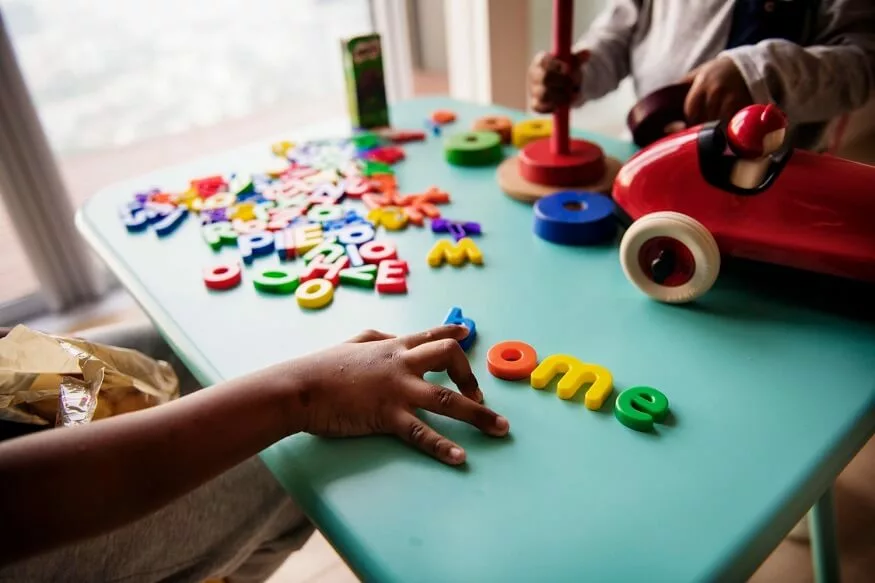Introduction
Montessori education is not just about teaching children to read, write, and solve math problems; it’s about preparing them for life. Unlike traditional education systems, which often emphasize rote memorization and standardized testing, Montessori education fosters a deeper, more meaningful understanding of the world. Children in Montessori environments are encouraged to think critically, solve problems, and become independent learners, skills that can benefit them throughout their entire lives. In this article, we’ll explore why Montessori education gives children a lifelong advantage and how it shapes the way they approach learning and life in general.

Core Concepts of Montessori Education
Montessori education is based on several key principles that make it unique. These principles focus on a child-centered approach to learning that respects the child’s natural development, encourages self-expression, and promotes curiosity. The goal is to create an environment where children are not just taught, but are guided to explore, question, and discover the world around them.
Self-Directed Learning
One of the fundamental aspects of Montessori education is self-directed learning. In a Montessori classroom, students are given the freedom to choose their activities based on their interests and developmental stage. This helps foster a sense of autonomy and responsibility in children, which not only boosts their self-confidence but also equips them with the tools needed to become lifelong learners.
Holistic Development
Montessori education emphasizes the development of the whole child. Instead of focusing solely on academic success, the Montessori approach nurtures a child’s emotional, social, physical, and cognitive growth. This holistic development ensures that children are not only prepared academically but are also emotionally and socially equipped to navigate life’s challenges.
The Importance of Independence in Montessori Education
One of the biggest advantages of Montessori education is the emphasis on independence. From an early age, children are taught to make choices, take responsibility for their actions, and solve problems on their own. In a Montessori classroom, this independence is not just about completing tasks; it’s about developing a mindset that encourages children to be proactive, self-sufficient, and confident in their abilities.
Fostering Responsibility
In Montessori education, children are given the responsibility of managing their own learning. They are encouraged to set their own goals, track their progress, and choose their work based on their interests. This responsibility fosters a sense of ownership over their education, motivating children to take pride in their work and to continuously strive for improvement.
Developing Self-Motivation
Montessori children are not dependent on external rewards such as grades or teacher approval. Instead, they are intrinsically motivated by their own desire to learn. Because they have the freedom to explore subjects they are passionate about, children develop a natural curiosity that drives them to seek knowledge on their own.
Practical Skills and Hands-On Learning
Montessori education is built on the idea that children learn best through hands-on experiences. Instead of learning abstract concepts through lectures or worksheets, Montessori students engage in practical activities that help them understand complex ideas in a concrete way. For example, a child might use counting beads to learn basic math concepts or manipulate shapes to explore geometry.
Learning by Doing
In Montessori classrooms, children are given the opportunity to “learn by doing.” Whether they are preparing a snack, cleaning up their work area, or participating in group activities, children are constantly engaged in activities that teach them both practical life skills and academic concepts. This approach ensures that learning is meaningful and relevant to their everyday lives.
Encouraging Exploration
The Montessori method encourages children to explore their surroundings and ask questions about the world around them. This exploration is not confined to academic subjects but extends to emotional and social development as well. Through guided exploration, children learn to be curious, resilient, and adaptable to new experiences.
How Montessori Education Prepares Children for the Future
One of the main reasons parents choose Montessori education is because it prepares children for success in the future. The skills children acquire in Montessori classrooms—critical thinking, problem-solving, independence, and self-regulation—are essential for success in today’s fast-paced, ever-changing world.
Adaptability and Problem-Solving Skills
The Montessori approach encourages children to be adaptable and resilient, two traits that are crucial in an ever-changing world. In a Montessori classroom, children are often faced with challenges that require them to think critically and problem-solve on their own. This helps them develop the skills needed to navigate life’s uncertainties and find solutions to problems creatively.
Collaboration and Social Skills
Montessori classrooms often consist of mixed-age groups, which fosters collaboration among children. Younger children learn from older children, and older children reinforce their learning by teaching younger peers. This collaborative learning environment helps children develop important social skills such as teamwork, empathy, and communication.
Conclusion
Montessori education offers children more than just academic knowledge; it equips them with the skills they need to thrive in life. By promoting self-directed learning, independence, and hands-on experiences, Montessori education fosters a love of learning that lasts a lifetime. As children grow, they develop the critical thinking, adaptability, and collaboration skills necessary to succeed in an ever-evolving world. Montessori education truly prepares children for lifelong success in both their personal and academic endeavors.